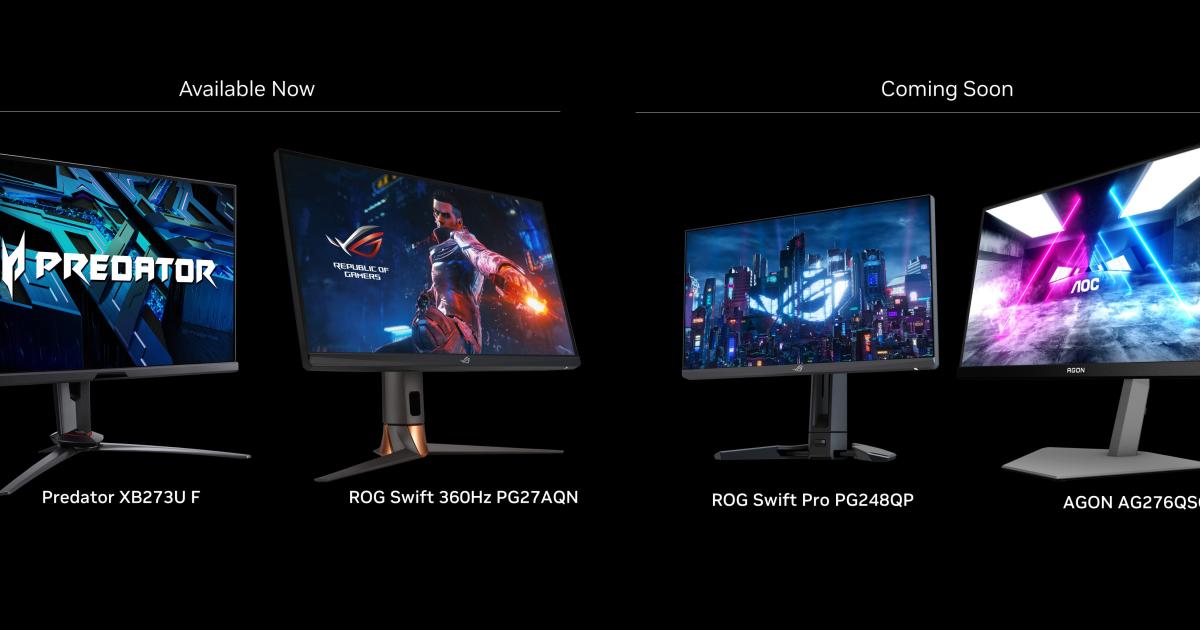
has G-Sync Ultra Low Motion Blur (ULMB) 2, the second generation of tech it designed to minimize motion blur in competitive games. Compared with ULMB, which it released in 2015, the company says the latest version offers nearly twice as much brightness, along with almost no — the strobing or double-image effect that sometimes appears when blur reduction features are enabled.
Motion clarity is largely determined by the monitor’s pixel response time. To improve matters, NVIDIA is using “full refresh rate backlight strobing,” which builds on the backlight strobing technique from the original ULMB. Although the previous version of the tech improved motion clarity for many, it needed to switch off the monitor’s backlight 75 percent of the time. This reduced the brightness of the screen.
With ULMB 2, NVIDIA is able to match the display’s refresh rate when it turns the backlight on and off. The aim is to only turn the backlight on when pixels are at the correct color value for each frame. This mitigates crosstalk, as you shouldn’t see pixels when they’re transitioning to the accurate color.
This approach with the slower pixel refresh rates of older monitors. ULMB 2 is able to run at the full refresh rate of current displays. On a 360Hz display, each backlight strobe happens every 2.7 milliseconds — a rate that’s imperceptible to the human eye.
What this all boils down to is NVIDIA being able to offer more brightness and an effective motion clarity of over 1000Hz. If you use a 360Hz monitor with ULMB 2 on, NVIDIA says you’ll get an effective motion clarity of 1440Hz. The company claims that, without ULMB 2, you’d need a monitor that’s capable of 1440Hz to get equivalent motion clarity. Given that we’ve 500Hz monitors, mass-market 1440Hz displays seem quite a ways off.
NVIDIA offered some brief demos of ULMB 2 in action. In the video below, you’ll see what a motorcycle pursuit sequence looks like in slow-motion at 360 frames per second with the feature both off and on.
ULMB 2 is available now as a free update for compatible 1440p, 360Hz G-Sync monitors. Only two such displays are on the market at the minute, NVIDIA says: the Acer Predator XB273U and the ASUS ROG Swift PG27AQN, both of which are 27-inch monitors. The ASUS ROG Swift Pro PG248QP (a 25-inch 1080p, 540Hz display) and the 27-inch AOC AGON AG276QSG G-Sync Monitor are also compatible, and they’ll be available soon.
NVIDIA announced ULMB 2 alongside some AI developments at Computex. The company is that’s designed to help companies build generative AI models. It also showed off tech that will enable players to use their microphones and with in-game characters.
All products recommended by Engadget are selected by our editorial team, independent of our parent company. Some of our stories include affiliate links. If you buy something through one of these links, we may earn an affiliate commission. All prices are correct at the time of publishing.













